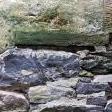Search the Community
Showing results for tags 'concrete cracking'.
-
A word about concrete slabs, especially in hot weather. Concrete is a highly sophisticated product, and with proper handling it produces effectively rock to the shape you want. Many things can go wrong, but they can all be controlled. The principle is that we are gluing together bits of rock, back into the form we want, using cement. There should always be a proven formula for the mix. For a bridge or multi-storey it is very much more precise and controlled than for a garden path, but it is always worth attention. The main thing that most public don't realise is the difference between cement and concrete. Cement is ONLY the dust that goes in the mix to make mortar or concrete. The biggest important thing that many in construction do not know is that concrete is strong through curing, not drying. Do not assume that your groundworker knows all, or much, of this. For a strong concrete mix there are large stones, with all the gaps between filled with small stones, and the further gaps filled with sand. Every surface is coated with the slurry of cement and water that has been carefully mixed in. There are no pockets of cement, it is all aggregate to aggregate contact. A chemical reaction then happens that makes the cement stick everything together, and water is used in this reaction, and taken out of the mix as a permanent part of the matrix chemistry.. Any additional water will simply sit in the mix, until it evaporates, leaving lighter concrete and miniscule gaps. It is essential that there is the right amount of water. a) enough to allow the chemistry to occur. b) not too much that it spoils the mix and eventually leaves voids in it. The chemistry takes many days, and concrete gets harder for at least a month, if properly looked after. For this to happen, the laid concrete must not be allowed to dry out, so it must be covered with plastic or wet hessian. Once the surface is hard, water can be sprayed over it. Don't use too much water, and don't allow the concrete to dry out through sun or wind. If it is very hot or windy, postpone it. (Frost is another matter). Why do supposedly expert groundworkers have problems with cracking? Mostly because they add extra water, by hand or by asking the delivery driver*. This makes it much easier for them to handle. Secondly because they don't know the difference between drying and curing, and want it to go hard so they can go home. Thirdly incorrect use of steel mesh (which is for cracking control not strength), dpm, and joint preparation. (* A readymix company will allow water to be added, but will record this on the delivery chit, and thus it is not their problem. They may also takes samples and make cubes for testing, and store them in a tank of water for ultimate strength, for 7 and 28 days.) All concrete cracks. How and how much it cracks is the skill. Enough for now, do ask for clarification or more information.


